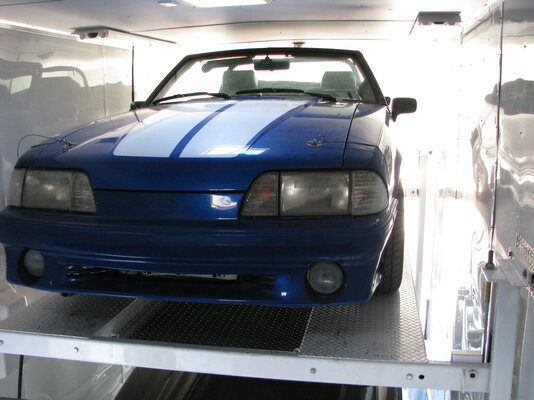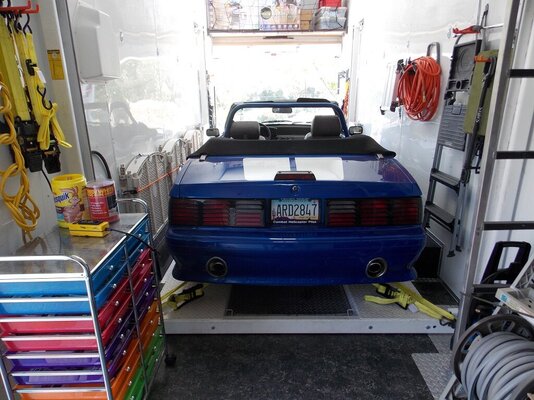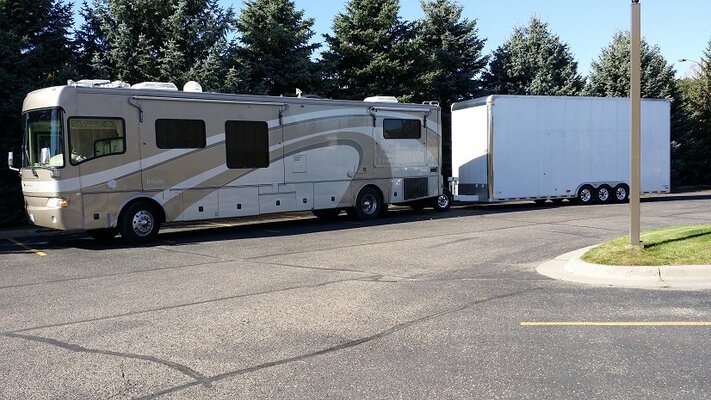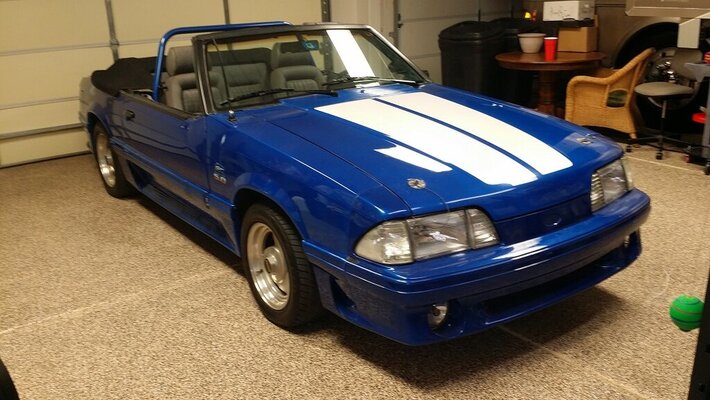RVJeeper18
Member
- Joined
- Sep 19, 2018
- Posts
- 12
Flat Tow vs Trailering behind a Class C - Which Option should be "easier" from a power/energy required standpoint, get better MPG, and just feel easier to pull? My first though is flat tow is clearly the answer if for no other reason than a trailer adds significant weight - right? I ask because we do both regularly and the trailered vehicle just feels easier and seems to get better MPG. Doesn't make sense in my feeble little brain.... Maybe someone can explain the physics to me?
For context - Class C motorhome - If we are going off-roading we haul a modified 2004 Jeep Wrangler on a car hauling trailer. If we just need an extra set of wheels we flat tow the wife's daily driver 2014 Wrangler Unlimited. The 2014 is basically stock and set up correctly for flat tow (we have drug it several thousand miles so figure i would have blown something up if not..). The 2004 is heavily modified so probably weighs as much as the JK. We haul it on a good aluminum car hauling trailer.
For context - Class C motorhome - If we are going off-roading we haul a modified 2004 Jeep Wrangler on a car hauling trailer. If we just need an extra set of wheels we flat tow the wife's daily driver 2014 Wrangler Unlimited. The 2014 is basically stock and set up correctly for flat tow (we have drug it several thousand miles so figure i would have blown something up if not..). The 2004 is heavily modified so probably weighs as much as the JK. We haul it on a good aluminum car hauling trailer.




